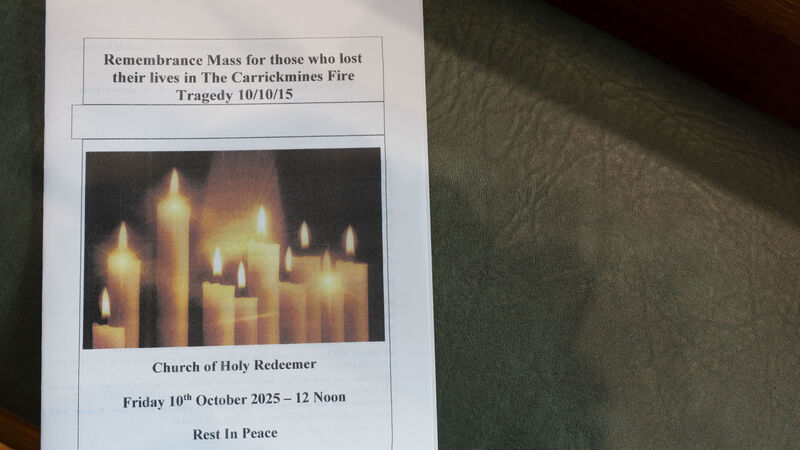We need to acknowledge our structural problem with racism

Families remember their loved ones who died in the Carrickmines fire tragedy at a Mass in the Church of Holy Redeemer, Bray. Picture: Sam Boal/Collins
This week, the Irish Human Rights and Equality Commission (IHREC), the organisation I lead, will release two publications. Both challenge the most persistent misconceptions about racism in Ireland, that it is rare, recent, or the work of a few individuals or groups.
One is our (second) Review of Section 19 of the Intoxicating Liquor Act, which shows how Travellers are systematically discriminated against in law and in practice in public houses and other places.













